News & press releases
LEGaTO organises a workshop on Low-Energy Heterogeneous Computing
The 'Low-Energy Heterogeneous Computing Workshop', collocated with FPL 2020, was held by LEGaTO on 4 September 2020 as the project’s final event. Over 75 people from around the globe, ranging from researchers to practitioners and industry representatives, attended the presentations and joined the discussion.
The objective of the workshop was to apply the optimization low-energy techniques used in each of the LEGaTO use cases to other stakeholders and present the project’s latest scientific results. External speakers and LEGaTO researchers came together to engage the Artificial Intelligence, Smart City, Smart Home, Healthcare and IOT communities to evangelize the low-energy optimization techniques that have been developed during the lifetime of the LEGaTO project.
Miquel Pericàs (Chalmers University of Technology), FPL 2020 co-organiser and Chalmer's LEGaTO Principal Investigator, said:
“The LEGaTO workshop was a great way to celebrate the achievements of the LEGaTO project. It was inspiring to see such a diverse audience come together to learn about novel technologies for achieving higher energy efficiency. We are very pleased to have such a successful workshop at FPL 2020”.
Osman Unsal group manager for the Department of Computer Architecture and Parallel Paradigms at the Barcelona Supercomputing Centre (BSC) and coordinator of LEGaTO, said:
"We are very excited to have this distinguished panel of experts to detail low-energy optimization techniques and to discuss the outcomes of the LEGaTO project and related technologies. It has been a very successful final event for the project."
Recording of the workshop
Osman Unsal kicked off the workshop with the opening remarks and a presentation of the LEGaTO project. The keynote talk was given by Stephan Diestelhorst (Xilinx), who outlined the challenges posed by accelerators used to enhance performance and efficiency of compute, and explored different ways to tackle them. The presentation was titled The Accelerator Conundrum - and three sketches to solve it.
The programme included sessions on (please click on the titles for the slides):
1. Energy Efficiency, chaired by Jens Hagemeyer (Bielefeld University)
- Dimitris Gizopoulos (University of Athens): Energy Efficiency in Multicore CPUs: Harnessing Voltage Margins
- Oscar Palomar (BSC): Energy efficiency opportunities with long vector architectures
- Nils Kucza (Bielefeld University): Smart Home - AI at the edge
2. Fault Tolerance and Security, chaired by Leo Bautista (BSC)
- Paulo Esteves-Verissimo (University of Luxembourg): Resilient distributed systems-on-a-chip: the recipe for platform security and dependability
- Jaume Abella (BSC): Resilient high-performance and low-power platforms for safety-critical real-time Systems
- Christof Fetzer (TU Dresden): Ensuring consistency in the face of failures and attacks
3. AI and Smart City/Smart Home, chaired by Micha vor dem Berge (Christmann)
- Mariano Lamarca (Barcelona City Council): Smart Cities Services Evolution
- Francisco Ramírez (Bettair): Assimilation of real-time data from secondary air pollution monitoring networks into air pollution modeling algorithms
- Anders Logg (Chalmers University of Technology): Digital Twin Cities Centre
4. FPGAs and Programming Models, chaired by Miquel Pericàs (Chalmers University of Technology)
- Dirk Koch (University of Manchester): Operating Systems for FPGAs - Why and How?
- Miriam Leeser (Northeastern University): FPGA's at the Edge: Efficient 5G Communication and Security Considerations
- Tobias Becker (Maxeler): Infection Research with Maxeler Dataflow Computing
5. European Related Projects, chaired by Marcelo Pasin (University of Neuchâtel). Four European projects were introduced, as well as their synergies with LEGaTO:
- Eduardo Quiñones (BSC): The ELASTIC project: A Software Architecture for Extreme-Scale Big-Data Analytics in Fog Computing Ecosystems
- Filippo Cugini (CNIT): BRAINE project - Big data pRocessing and Artificial Intelligence at the Network Edge: overview and use cases
- John Davis (BSC): eProcessor: European, extendable, energy- efficient, extreme-scale, extensible, Processor Ecosystem
A poster session, chaired by Behzad Salami (BSC), was also organised. 11 early career researchers were able to present their contributions to the LEGaTO project. Their poster presentations were recorded and available online in advance, and they also answered questions during the session. The most voted poster was 'RECS – Cloud to Edge Microserver Platform for Energy-Efficient Computing, by Martin Kaiser (Bielefeld University), who will be featured in an interview in the forthcoming HiPEAC info (January 2021).
Presentation of the most voted poster, 'RECS – Cloud to Edge Microserver Platform for Energy-Efficient Computing' by Martin Kaiser (Bielefeld University)

